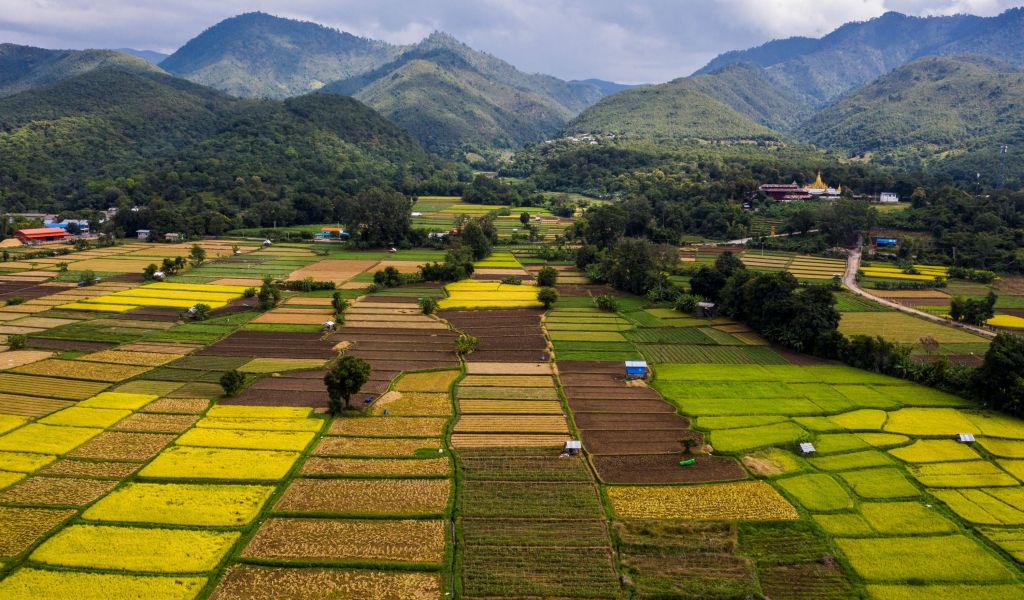Good forestry laws require successful implementation

It was a historic year for Nepal in 2017. And I happened to be in the country conducting community consultations on community forestry. More than 14,000 women were elected to local offices in the country’s first ever local elections. This was good news for the 45 percent of forested land in Nepal. A quarter of Nepal’s forests are now managed by communities with many led by women. Listening to the stories of villagers then and now, I continue to see why Nepal is a leader in Asia and the Pacific for community forestry.
Nepal’s strength lies in its bottom-up approach, flexible and participatory process and continued adaptation of their laws and policies. The success of Nepal offers countries in ASEAN who are pursuing legal change a model for reform.
Countries like Viet Nam that started enforcing their new forest law in 2019 and Thailand that passed their first ever law on community forestry that same year could learn from Nepal’s example. Other countries like Myanmar are pursuing a similar approach by complementing their new forest legislation with additional guidelines on community forestry.
Legal reform processes change the rules of the game and ensure the appropriate rights and responsibilities of stakeholders are identified. I have also found that reform processes are instrumental to ensuring the right mechanisms and conditions are in place for successful implementation.
Factors that might cause the need for legal reform include, but are not limited to actions that:
- Amend a law to adapt to a new legal framework
- Modernise outdated legislation
- Add to existing regulation to take into consideration the traditional use of forests by local communities
- Incorporate international commitments into national legal instruments
It is important that the process to develop new rules is inclusive, respectful and appropriate. A few elements must be considered to make sure it is the case:
- Early planning
- Set clear objectives for the reform
- Conduct the necessary analysis of current laws and context
- Involve various stakeholders
- Be open to input from those that will be the most affected by the law such as local communities and indigenous people
I’ve seen in my work how civil society organizations are essential in shaping new laws. They do not replace the direct voice of communities. But they can help bridge the gap between local actors and the central administration. Civil society can also help with the equitable implementation of new rules once they are in place.
This is important because good laws can only deliver for people and forests if they are enforced. Law implementation is essential to ensuring real and lasting changes on the ground.
I was part of a discussion at an ASEAN policy exchange on community forestry how Indonesia is setting an example for the region.
The Government of Indonesia instituted a set of land reforms that focused on agrarian and social forestry reform in August 2018. These reforms were part of the government’s efforts to provide local and Indigenous Peoples with stronger rights to manage the country’s forests. In 2019, new regulations were passed to complement these reforms.
The Ministry of Environment and Forestry created key mechanisms to support the implementation of the new policies and legal regulations. The ministry created a cooperation mechanism between various agencies, including the Directorate of Business Development for Social Forestry and Customary Forests, to discuss issues on social forestry. Multi-stakeholder working groups on social forestry were also created, which were comprised of stakeholders in each province. The ministry has also created a database showing a map of allocated community forests to help government officials make policy decisions and keep the public informed. Financial mechanisms have been developed such as loans for farmers through cooperation between the banks and the Ministry of Finance to help guarantee the development of small and medium enterprises.
Indonesia’s experience was insightful. However, there are other conditions for successful implementation:
- Understanding of the new laws and their wide dissemination
- Raising awareness to various actors on the new rights and obligations provided for in the legislation
- Building capacity at the local and national levels to translate complex legal concepts and procedures into accessible tools for communities and governments
- Developing strong institutions and governance mechanisms with the right level of financial and human resources
The legal reforms in Asia taking place, amongst others with the development of Voluntary Partnership Agreements under the Forest Law Enforcement, Governance and Trade (FLEGT) initiative, have opened up space to improve laws on community forestry. These reforms represent a unique opportunity for countries in the region to achieve their ambitious targets to increase their community forest areas.
The work by RECOFTC is made possible with the continuous support from the Swiss Agency for Development and Cooperation (SDC) and the Swedish International Development Cooperation Agency (Sida).

Nathalie Faure is a senior law and policy advisor for climate and forests at ClientEarth.

